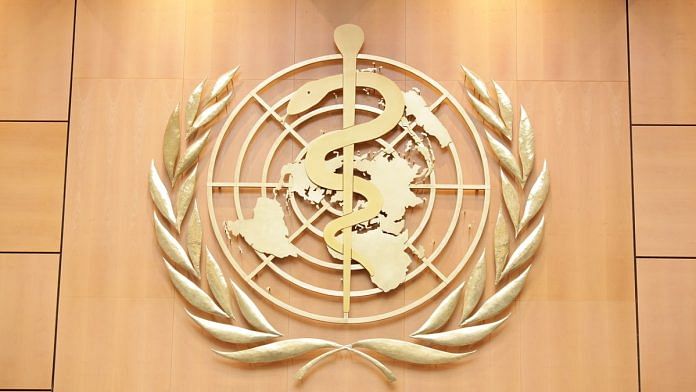New Delhi: The World Health Organization (WHO) is currently probing allegations of 20 substandard cough and paracetamol syrups manufactured by 15 makers from India and Indonesia being responsible for nearly 300 deaths across nine countries.
The UN health agency, however, refused to share the full list of companies from India whose products have been flagged for contamination. “We can’t divulge names or details of manufacturers other than those that are in our medical alerts,” WHO spokesperson Christian Lindmeier said in an email response to queries by ThePrint.
Lindmeier added that the recent spate of incidents involving contaminated medicines began to emerge with reports between July and October 2022 in The Gambia with subsequent reports coming to light in Indonesia, Uzbekistan, Micronesia & Marshall Islands.
The WHO spokesperson, however, said instances of contaminated drugs being found in the six countries mentioned above warranted WHO Medical Product Alerts. WHO issues such alerts when it has sufficient evidence to demonstrate that a product is contaminated, he said, adding that this is determined by product analysis by the affected country, the country of origin, or the manufacturer.
Last year, episodes involving cough syrups manufactured by Haryana-based Maiden Pharmaceuticals — linked to the deaths of nearly 70 children in The Gambia — and syrups manufactured by Noida-based Marion Biotech — linked to the deaths of 18 children in Uzbekistan — had made international headlines.
In both cases, the drugs were found to be allegedly contaminated with toxic substances diethylene glycol and ethylene glycol, according to impacted countries.
The Indian government, in the first case, found several good manufacturing practices (GMP) violations vis-à-vis The Drugs and Cosmetics Act, 1940 by Maiden Pharmaceuticals but a batch testing report by the regulator had shown that there was no contamination in the drug. In the second case, however, the exported drugs were found to be contaminated.
Findings of Indian drug regulators into any other spurious drugs in question exported to countries like Micronesia and Marshall Islands are not known.
In view of these cases, the government made a decision that starting 1 June, all paracetamol and cough syrups being exported from India will undergo a mandatory analysis for quality in specified government labs.
ThePrint reached Drug Controller General of India (DCGI) Rajeev Singh Raghuvanshi via call for comment on the WHO statement but had not received a response by the time of publication. This report will be updated if and when a response is received.
Also Read: Watchdog finds no major violation at factory accused of exporting ‘tainted’ eye drops to Sri Lanka
‘Haven’t expanded list of Medical Product Alerts’
The WHO maintained that instances of product contamination with diethylene glycol and or ethylene glycol date back to the 1930s. Diethylene glycol and ethylene glycol are toxic substances and should not be present in human medicines, it said.
“The recent spate of contaminated medicines began with reports in July – October 2022 in The Gambia with subsequent reports in Indonesia, Uzbekistan, Micronesia & Marshall Islands. These all warranted WHO Medical Product Alerts,” Lindmeier said in response to queries by ThePrint.
‘To date, this situation has impacted more than 20 products with two countries of origin (India & Indonesia) and more than 15 different manufacturers. All the products are syrup-based (paracetamol syrup, cough syrup, or vitamin syrup),” he added.
Lindmeier emphasised that WHO takes all reports of substandard or falsified medical products very seriously and is aware of media reporting of potentially contaminated syrups in other countries than those already listed. “Whilst investigations are ongoing, WHO has not expanded its list of medical product alerts. This may change as we receive more information,” the world health body spokesperson added.
Tedros Adhanom Ghebreyesus, WHO director-general had in January this year issued a call to action to implore all member states to prevent, detect and respond to incidents of substandard and falsified medical products.
(Edited by Amrtansh Arora)
Also Read: Coming soon: Accreditation norms for IVF clinics to ‘ensure quality service, best patient outcome’



